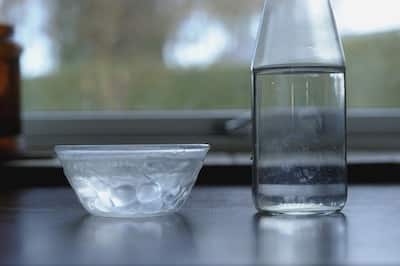Ways to Humidify Your House (Without a Humidifier ) During the winter months, low humidity in your home can become an issue, leading to worsening allergies, dry skin, static electricity and increased susceptibility to colds and flu. Find ways to add moisture to the air without the expense of buying and running a humidifier. More effective are stand alone and whole house. If winter in your home means dry skin, scratchy throats and lots of static electricity buildup, you may have a problem with low humidity. When you close the windows and turn the heat on in the winter , you begin to reduce the humidity in your home.

Here are some ways to balance it back out. Another great way to humidify a room naturally and perhaps a more effective alternative to the above trick, is to boil the water before placing it near the heat source or keep the water boiling for an extended period of time. The air humidifier is a device designed to improve the percentage of humidity in the air inside a certain space. This device is mainly used in winter , the season during which the humidity in the air is in decline.
This is due to the use of heaters like radiators that run at full speed. Use a Large Room Humidifier. As we said earlier, the most effective way to humidify your home is by using a large room humidifier.
If you decide to use a humidifier , just make sure to choose a model that is powerful enough to cover the full area of your house or the room where you need to add humidity. I’ve tried this trick and it works. Simply place a metal bowl (or ceramic) on top of your floor register or a radiant heating unit. Depending on the current humidity levels in your home (and how much your heat is blasting) the water will evaporate into the air in your home. To moisten the air in your abode , grab some plants, put out some dishes of water, and get cooking.
Depending on the size of your home , it may not adequately circulate throughout the house. Boil water on the stove. However, you can keep fans on low and keep your HVAC fan in the “on” position to encourage circulation.
The best and most controllable humidity system, you can add a whole house humidifier to your furnace to have vapor distributed directly into the heated air and circulated throughout the house your normal duct system. The whole house system is the most expensive option, and requires a cold water connection and space for the humidifier unit. If your home is notoriously dry, your clothes will probably be ready for folding in an hour or two, and they’ll have helped add some humidity to the air temporarily. Seal it up and then see where you are before deciding on a humidifier.
A humidifier is usually a bandaid for a leaky home. If your relative humidity is too high in winter , yeah, you could install a dehumidifier, but there are better ways to solve the problem. Basically you are draping a wet towel onto a plastic milk crate and setting. Dry air is an inescapable part of winter , and unfortunately, heating your home to a comfortable temperature will only make the issue more apparent. If you are concerned about your personal health, the comfort of your home , or maybe even your bills, then using your heater and humidifier in tandem is your best bet.
One of the best ways to increase humidity inside your home is to leave a large pot of water simmering on the stove top. Leave Water Simmering. You can also spice things up a bit (pun intended) by adding cloves, cinnamon and other herbs to the water. The resulting steam will fill the air not only with much-need moisture,. Make use of your house plants.
House plants can do a lot of things, including making you feel comfortable in your room. The most convenient way to control humidity in Florida homes is with dehumidification equipment. We like units that bring in outside air, deeply dehumidify it, then inject it into the home.
Running a humidifier in your home will add moisture to dry, heated air. The moist air will help keep your skin, mouth, and nose lubricate and helps prevent those nasty static shocks. Your goal is to aim for a comfortable home humidity level of between and. Every breath you exhale flings moisture into the air. Showers, cooking and houseplants all add humidity too.
That humidity combined with cold windows and walls is a recipe for winter moisture problems, says Ken Hellevang, an agricultural engineer with the North Dakota State University Extension Service. The only downside is that purchasing Honeywell requires specific replacement filters (at $each) which can be expensive. Vicks Warm Mist Humidifier.
It has the same hour runtime as well as a built- in medicine cup that is great for combating those winter colds!
No comments:
Post a Comment
Note: Only a member of this blog may post a comment.